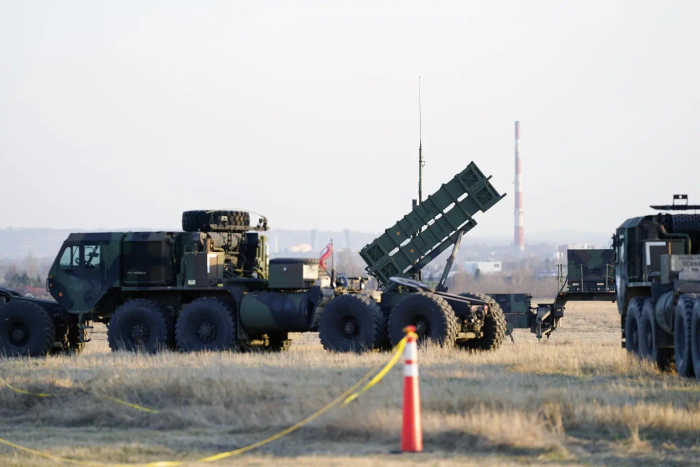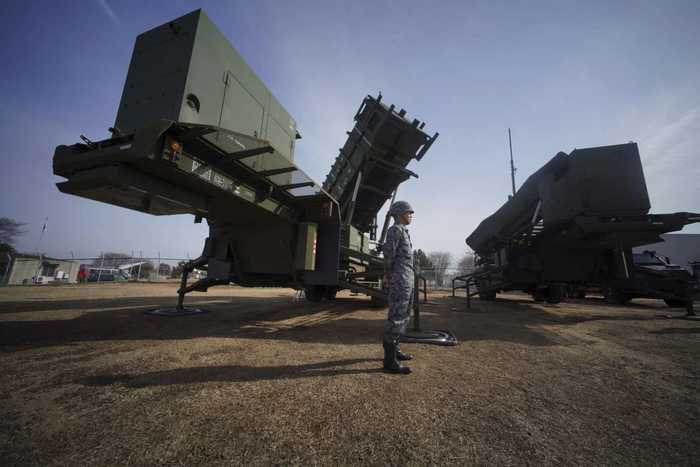Published 16:00 IST, December 24th 2023
Chief Cabinet Secretary Yoshimasa Hayashi highlights the move's significance in bolstering the Japan-US alliance and contributing to peace in the Indo-Pacific.
Advertisement
Amid escalating tensions in the Indo-Pacific, Japan has made a significant policy shift by relaxing arms restrictions, allowing the export of domestically produced missiles and artillery, including Patriot Air Defence missiles, to select countries, including the United States. The Japanese cabinet's approval of a record increase in spending for the next year signals a strategic move to strengthen alliances and enhance regional security.
The Japanese cabinet's decision marks a departure from historical norms, allowing the shipment of Patriot Air Defence missiles to the United States. While the new measures still impose restrictions on countries at war, the move opens avenues for increased military aid to be supplied by the US to Ukraine in its conflict with Russia. Chief Cabinet Secretary Yoshimasa Hayashi emphasized the significance of the decision in strengthening the Japan-US alliance and contributing to peace and stability in the wider Indo-Pacific region.
Advertisement
MIM-104 Patriot: A vanguard in modern defense
The MIM-104 Patriot stands as a crucial surface-to-air missile (SAM) system, serving as the primary defense apparatus for the United States Army and several allied nations. Manufactured by the renowned U.S. defense contractor Raytheon, the Patriot system plays a multifaceted role in high to medium air defense (HIMAD) and medium tactical air defense. It also contributes significantly to the U.S. Army's anti-ballistic missile (ABM) system, showcasing its versatility in modern warfare.
The core of the Patriot system lies in the AN/MPQ-53 radar, aptly named the "Phased Array Tracking Radar to Intercept on Target" (PATRIOT). Developed at Redstone Arsenal in Huntsville, Alabama, the system replaced the Nike Hercules and MIM-23 Hawk systems in the mid-1980s, becoming a cornerstone of the U.S. Army's defense capabilities.
Advertisement

Patriot's advanced aerial interceptor missile, coupled with high-performance radar systems, positions it as a formidable force in combat. One noteworthy aspect of the Patriot system is its lethal autonomy, marking it as one of the first tactical systems in the U.S. Department of Defense to incorporate such capabilities. This autonomy played a crucial role in various engagements, including the shootdown of enemy aircraft, as demonstrated by the Israeli Air Defense Command during Operation Protective Edge in 2014.
Record increase in defence spending
In tandem with the policy adjustments, the Japanese cabinet approved a record increase in defence spending by over 16% for the year 2024. The allocated budget of 7.95 trillion yen (USD 56 billion) for the financial year starting in March aligns with Prime Minister Fumio Kishida's goal of doubling defence spending to reach the NATO standard of 2% of gross domestic product by 2027. This substantial increase aims to bolster Japan's defence capabilities in response to growing military ambitions in the region.
Advertisement

The increased budget will expedite the deployment of long-range cruise missiles capable of targeting locations in China and North Korea. The move reflects Japan's concerns over China's expanding military ambitions and the geopolitical uncertainties arising from Russia's invasion of Ukraine. With a heightened focus on regional security, Japan aims to fortify its defence capacity and address potential threats, including North Korea's missile launches and the possibility of nuclear tests.
Changing post-WWII principles
The recent announcements mark a departure from Japan's longstanding policy of refraining from exporting lethal weapons. The reinforcement of strike capability signifies a shift from post-World War II principles that limited the use of force to self-defence. The decision to export Patriot missiles, produced under license from US firms Raytheon and Lockheed Martin, underscores Japan's commitment to supporting allies and contributing to regional stability.
Advertisement
Under previous export rules, Japan was restricted to exporting only components of arms, with a prohibition on delivering completed products. The revised guidelines now allow the export of completed products to countries where patent holders are based. Re-exports to third countries, however, will require permission from Tokyo. The adjustment aligns with Japan's broader considerations, including potential exports of next-generation fighter jets and 155mm artillery shells to strategic partners.
The shift in Japan's export controls signifies a significant evolution in its defence posture, responding to evolving geopolitical challenges. As Japan navigates a more assertive role in regional security, future developments may include expanded collaborations and exports to further enhance its defence capabilities and contribute to global security dynamics.
Advertisement
16:00 IST, December 24th 2023